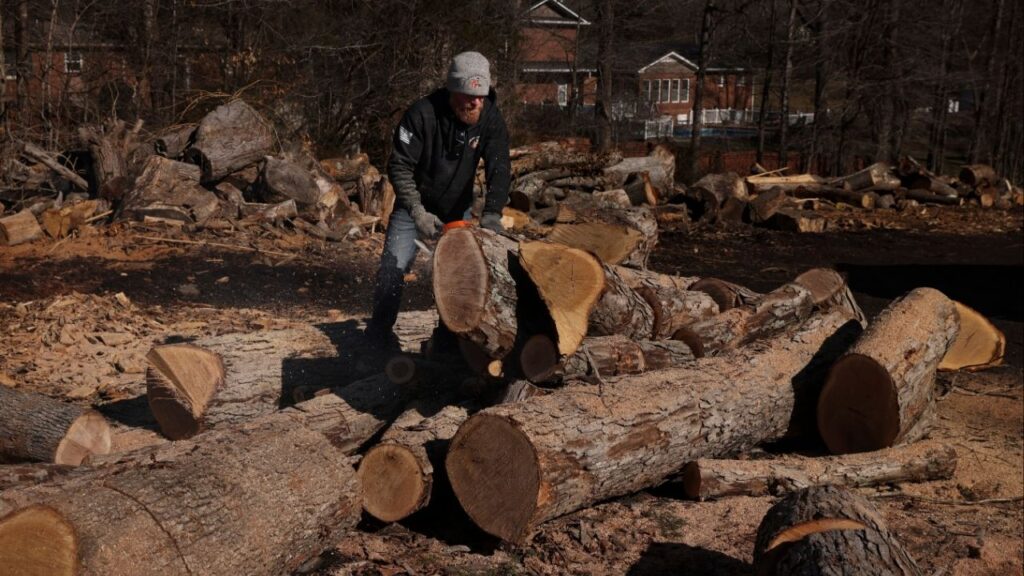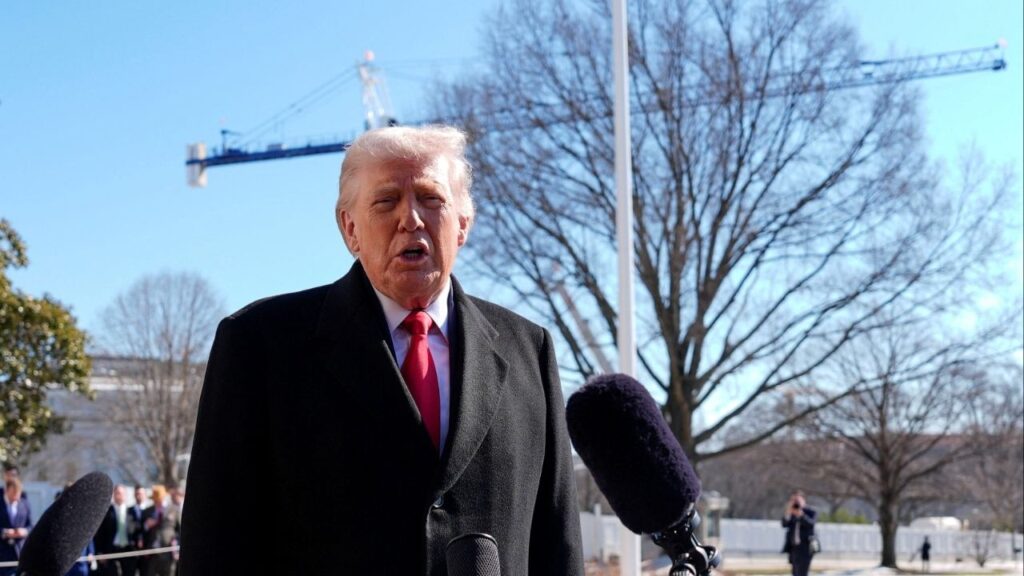Share
On Thursday, the California Air Resources Board will hold the first of two hearings on the nation’s first zero-emission mandate for trucking fleets. The proposal completely ignores the numerous practical concerns the trucking industry has raised for years.

Chris Shimoda
Special to CalMatters
Opinion
In some respects, CARB regulating the trucking industry is nothing new. Since 2008, California truckers have done their part to improve air quality, spending nearly $1 billion per year to upgrade their equipment to cleaner technology and comply with the country’s strictest environmental regulations. These changes include purchasing new engines and installing filters that have virtually eliminated diesel soot and reduced smog-forming emissions by more than 90%.
While efforts have been made by the trucking industry to transition to zero-emission fleets, the technology and infrastructure to support this transition are simply not there. There are currently fewer than 500 zero-emission commercial trucks on the road, according to the California Energy Commission. Fewer than 90 of these are electric semi-trucks, the workhorses of the American economy.
CARB’s proposed rule would require more than 518,000 zero-emission trucks on the road by 2040, and as many as 1.5 million trucks on the road by 2050. Meeting California’s goal of deploying more than half a million zero-emission commercial trucks by 2040 would require an average of about 38% of new truck sales to be zero-emission vehicles.
State Lacks EV Charging Stations
This is not realistic for the commercial trucking sector. Consider cars, for example. Despite decades of market development and billions in government subsidies, zero-emission car sales account for roughly 7% of purchases, according to the Alliance for Automotive Innovation. In California, they account for less than 15%. Fulfilling CARB’s mandate would require the truck market to leapfrog the development of the light-duty market overnight.
California would need to install as many as 800 chargers per week to power truck fleets, representing anywhere from 64 to 158 megawatts of new charging capacity – enough energy to power 118,000 households.
This is not a concern for the distant future, either. In order to meet the proposed regulations, more than 2,000 trucks servicing the ports in Los Angeles and Long Beach will require zero-emission conversions by 2025. This means roughly 100 megawatts of charging infrastructure needs to be installed in just over two years.
Less than 1% of this charging capacity for port trucks exists today.

Carrying large batteries could force trucks to shed as much as 8,000 pounds of their load capacity, a California Trucking Association analysis found, increasing the need for more trucks and more drivers at a time when the industry is already facing a historic shortfall of workers.
CARB Proposal Unfair to Truckers
CARB’s proposed regulations contain unfair provisions, which will punish truckers for not purchasing trucks that have not been built, and require them to accept trucks that they cannot plug in. Some charging infrastructure projects take years to complete and require complex utility upgrades, but CARB only allows fleets a one-year extension when these delays occur. Even worse, many drivers, including an estimated 75% of port truckers, will have to rely on a network of publicly available retail charging stations, which are nowhere near the scale required to support an entire industry – let alone the public.
CARB has been repeatedly warned about these issues for years. Experts have advised them to regulate in the areas of trucking where zero-emission technology has the best opportunity to succeed – namely smaller final-mile delivery trucks with centralized operations and long periods to charge. These vehicles more closely match the capabilities of today’s zero-emission truck technology, and can charge in a manner that will place less stress on our overburdened electrical grid.
The Air Resources Board has seemingly not paid attention to California’s ongoing supply chain, electricity, and affordability crises. This proposal will only increase costs, erase working-class jobs and strain our overburdened electrical grid by pushing for too much, too fast.
About the Author
Chris Shimoda is the senior vice president of government affairs for the California Trucking Association, the nation’s largest statewide trade association representing trucking.
Make Your Voice Heard
GV Wire encourages vigorous debate from people and organizations on local, state, and national issues. Submit your op-ed to rreed@gvwire.com for consideration.



















